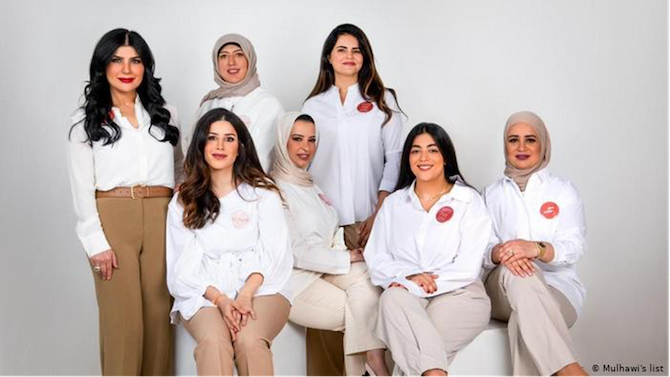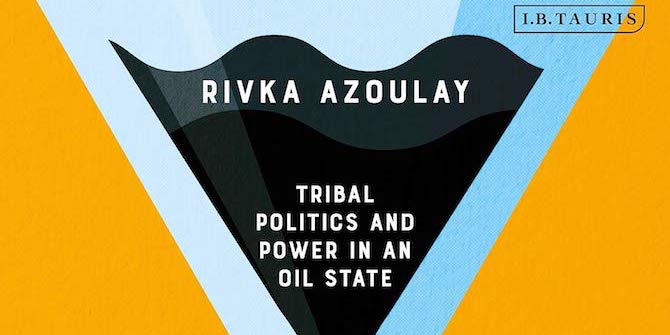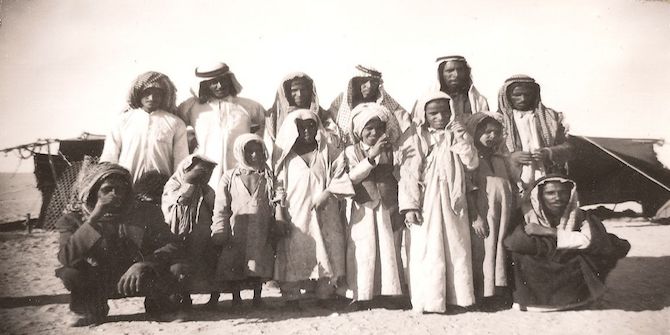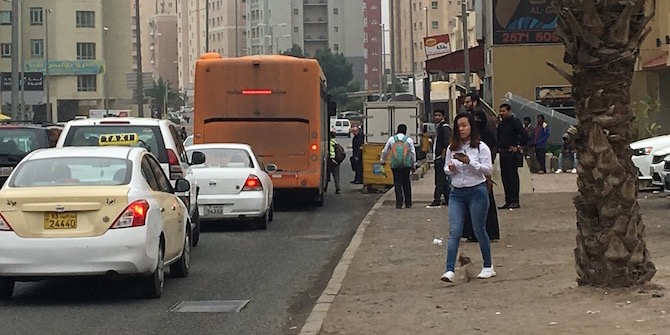By Shareefa Fadhel

Women behind Mudhawi’s List platform. Source: Mudhawi’s List
On 20 December 2020, large numbers of Kuwaitis headed to the polls to elect members of the National Assembly despite the COVID-19 pandemic, but, shockingly, none of the twenty-nine female candidates secured a parliamentary seat. Although efforts and involvement leading up to the elections showed a high level of political awareness amongst Kuwaiti women, the startling results raised questions over the future of all Khaleeji women’s political participation. The disappointment might have tempered Khaleeji women’s optimism of mirroring the Kuwaiti political success in their political systems, but it did not erase it. If anything, this experience has shown that women’s political experience is a Khaleeji affair, a collective effort.
Political participation of women in the Gulf has changed and matured over the past few decades. Researching the historical developments towards women’s political participation, several fascinating facts surface. One, Oman was the first Gulf country to allow women to vote, in a decree issued in 1994, followed by Qatar in 1999, Bahrain in 2002, Kuwait in 2005, the UAE in 2006 and finally Saudi Arabia with the change of government in 2015. Yet Omani women, like their Khaleeji counterparts, did not act upon this privilege. Tradition and culture, including tribalism, were at the source of their introversion, not their lack of education or eagerness to engage in politics. Two, Khaleeji women have historically been politically active and savvy decision-makers. Their political influence was evident within their family spheres and networks. Three, women’s limited successes in politics are attributed to government interventions to promote formal equality of political rights. The appointment of women in political positions, specifically in ministerial roles, was the Gulf governments’ way of supporting women’s political rights. Qatar was the first GCC country to appoint a woman Minister; Sheikha Ahmed al-Mahmoud was named the Minister of Education in 2003, followed by Bahrain and Oman in 2004, Kuwait in 2005, and the UAE in 2006. Finally, the gender ratio of the population is almost 50:50 in the GCC region. Hence, they are not a minority, and yet as candidates they fail to secure electoral seats.
Although Khaleeji women’s political status has progressed in some respects over the past 15 years, strong economic discrimination and social sentiment against women’s political participation remains.
The recent Kuwaiti election results in which no women were elected has made me question if quotas are a legitimate solution. As a women’s advocate and a local watching the situation evolve, I question the approaches that could achieve political equality. Noticing the call for quotas, a process that had scored equality successes for European countries, could this be the solution for the GCC? The demand for quotas as a solution is not new. Both Hatoon Al-Fassi and Ebtisam Al-Kitbi have emphasised that quotas and government appointments are an ideal intermediary solution to ensure Khaleeji women have a political presence.
The Kuwaiti political experience is the closest to a real sense of women’s political involvement in the Gulf, especially because women in Kuwait, as well as Bahrain, enjoy greater social liberties than their Khaleeji counterparts. However, the disappointing results over the past decade, from four elected women in 2009, down to one in 2016, highlighted a serious concern to female political advocates. The fears over the decline were realised when 29 women ran for the 2020 parliamentary elections, but none secured a seat. Although the number of women running for parliamentary seats increased, their failure to secure one indicated that the social and economic sentiments that militated against their success persisted. In efforts to address these issues, a group of Kuwaiti women collaborated and launched Mudhawi’s list.
Mudhawi’s list is a platform to support women in politics and help them secure electoral votes. The online platform is a virtual Majlis ‘dewaniya’ for female candidates to voice their opinions and create a network of supporters and donors while simultaneously garnering the public’s attention. The virtual platform was not just these women’s link to volunteers, in-kind services, and campaign assistance, it also raises public awareness of the importance of women occupying leadership positions; women who are in a position to voice other women’s concerns, support their rights and present a woman’s perspective. In a paper by Lubna AlKazi on women’s human development and social change, she reflects on how the lack of female voices in the political and legislative process resulted in the formation of gendered policies, which were created by men for women.

Members of Kuwait’s Parliamentary Women’s Committee. Source: Twitter
‘Good Luck Ladies’ was the headline that appeared in media outlets following the appointment of three male parliamentarians to head Kuwait’s Parliamentary Women’s Committee; men to represent women. Despite the progress achieved by national female activists and global pressures on the government, the road to women’s political presence is still far from being realised in Kuwait.
It is 2021, yet women in the Gulf seem to be far from achieving political equality. The more progressive steps are taken, the more they are hindered by regressive policies and laws formed by men. It is not enough to have a council full of women if the legislative systems are still male-dominated and controlled. The Kuwaiti experience reflects the situation faced by Khaleeji women: irrespective of their progress they are confined by the rigidity of the socio-political systems that currently exist.
Four main changes are needed to safeguard the future success of Khaleeji women’s political participation. First, the continuity of government appointments and mandatory quotas to ensure the voices and presence of women. Second, the current institutional systems need to be curated to accommodate women’s inclusion and involvement as decision-makers. Third, ensure that women make up a percentage of all senior positions in public and private organisations, especially as the ratio of educated women is comparatively higher than their male counterparts. Finally, appointing a Minister of Women, a ministerial role that ensures gradual improvements to current structures; a top-down approach where a woman’s voice can influence positive change.
Khaleeji women may be disappointed in their lack of representation in politics, but they are not discouraged from pushing forward to create change.







AOA
Sir i am from Pakistan.i have no idea what i am doing but unfortuntely i have no other choice left.
since i grow up till now the age of 38 i spend tuff and hard periods in my whole life..
first i have one kidny by birth.
2nd i dont have my own house to live and also i have no job even any buissness becouse i have no money.
i tried thousnds of time to get job but failed..our past gov kill pakistani economic values in evryway.
now i have only left this way if any one specilay any prince of this land can help me.for youre help my
life could be better.i have tow kids i have no future which could i gave them for better secure future.
please if anyone want to help me i can take a home.i can start my own bussiness even i can help my other
family members.. my no 923214681430
Email:imranmani120@gmail.com